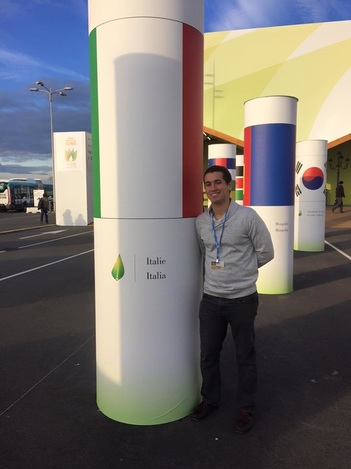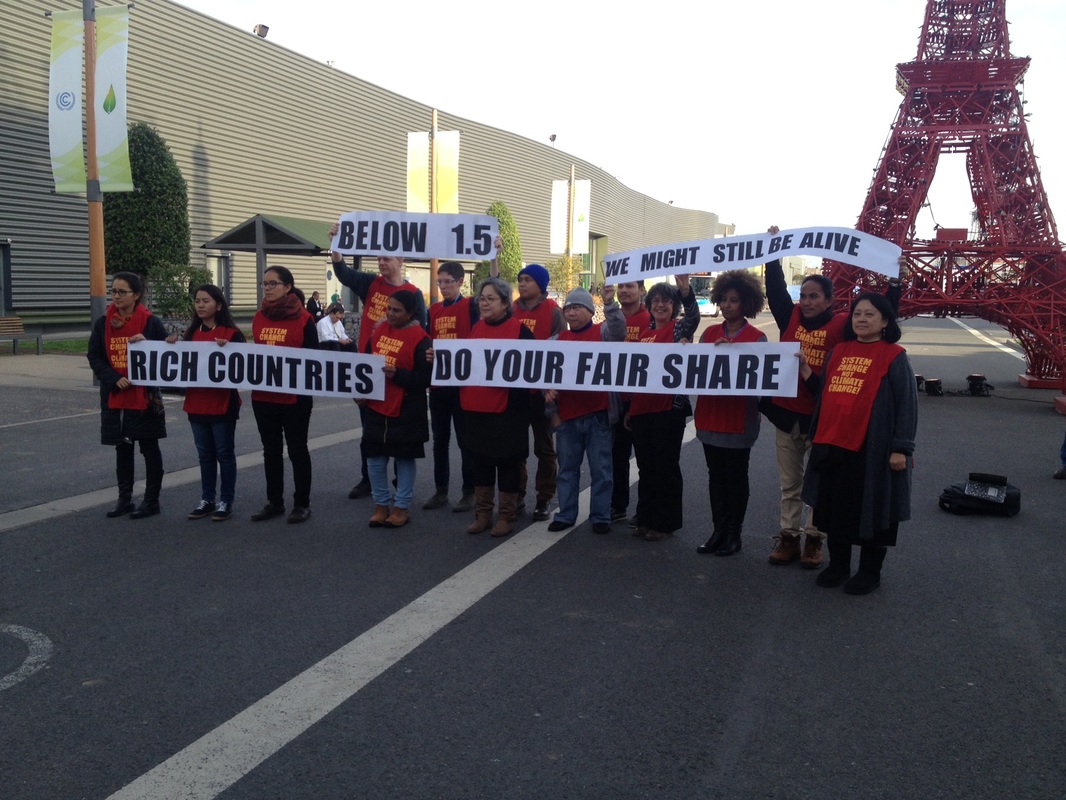However, later in the day, I caught up with Dr. Kathryn Sullivan, the U.S. Under Secretary of Commerce for Oceans and Atmosphere and Administrator for NOAA. She told me facetiously that “we would need to go to negative emissions by midnight tonight if we wanted to achieve the goal of a 2 degree celsius increase.” Essentially, she was suggesting that the goal of 2 degrees was already going to be difficult. In fact, so difficult that it is almost certainly too late to achieve an only 1.5 degree increase at this point due to our current state of emissions.
5 Comments
Michaela
9/12/2015 07:31:26 am
What an amazing shift in perspective, from "is climate change real" to "by how much should we try to reduce warming." Such an informative post. I really feel for the people of Grenada and other island nations in similar circumstances. It sounds like there is not a lot of hope for their nations.
Reply
Zachary Snier
9/12/2015 03:04:27 pm
I was shocked to be informed that a change in temperature larger than 1.5 would result in land loss for small island nations. If I may pose a question to you, if you had the power to persuade nations to follow a plan in order to meet a 2 degree or even a 1.5 degree limit, what would be included in your plan? In other words, what is the most ideal solution that can be reached at this conference under the assumption that all nations would agree to it?
Reply
Kahvi
13/12/2015 11:49:54 am
Such a small number has such damaging effects on the planet and on us. It could literally wipe out islands and thousands of peoples homes. And some of those people are living in poverty and don't have much as it is, for them to lose everything they have due to climate change just isn't fair. But there still is hope to put a stop to it and stop the rising climate, because this a problem that we all are apart of, and when one country suffers, we all suffer.
Reply
Jake K
14/12/2015 04:38:54 am
It is such an unfortunate situation that what seams like such a small number could impact a great amount of people and wipe out there homelands. And what is even worse is that the goal of 1.5 degrees is most likely unreachable. I can't even imagine what this situation is going to do to things such as the travel and vacation industry either. All the vacations to tropical islands will be non existent if this happens.
Reply
Taylor
15/12/2015 10:23:36 am
I found this post to be very eye opening. Before taking chemistry this year I have only heard the debate between if climate change is real or not. It is very eye opening that the small island countries are going to be under water if nothing happens about the amount of CO2 emissions. Plus with Dr. Kathryn Sullivan stating that this would have to happen over night, which clearly is not going to happen, and that was only for 2 degrees and not for the 1.5 degrees that the small countries are begging for. So what is going to happen to the small island countries and when?
Reply
Leave a Reply. |
Categories
All
Archives
March 2024
|


 RSS Feed
RSS Feed
